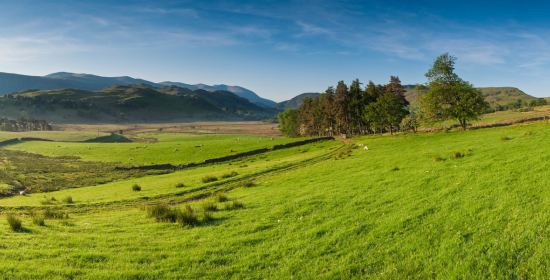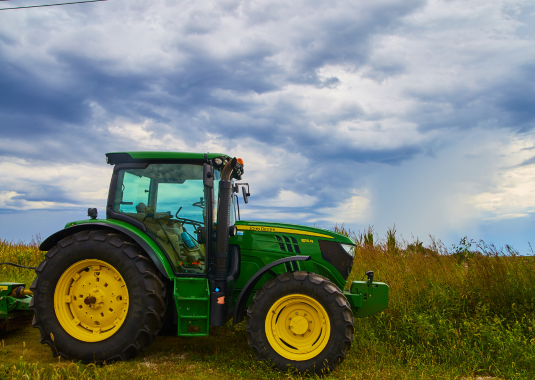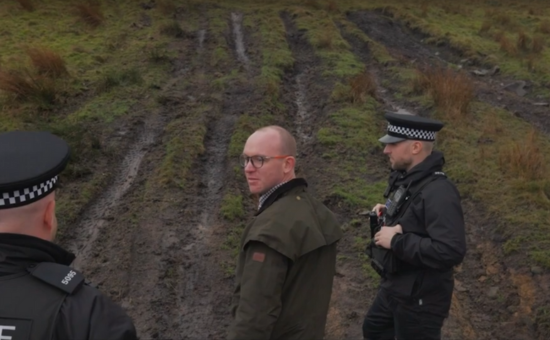About Us
Why Are We Here?
The National Rural Crime Network is working to see greater recognition and understanding of the problems and impact of crime in rural areas so more can be done to keep people safer.

Rural crime encompasses a wide range of offences, including theft, vandalism, illegal dumping, wildlife crime, and anti-social behaviour, among others. These crimes not only affect individuals and businesses directly targeted but also have broader implications for the entire rural community. The impacts can be felt economically, socially, and emotionally, creating a ripple effect that extends far beyond the immediate victims.
By collaborating with stakeholders, including law enforcement agencies, local authorities, community organisations, and by recognising the diverse nature of rural crime and its impact on various aspects of rural life, the NRCN advocates for holistic approaches that address the root causes of crime while also providing support and resources to affected communities.

What Is Rural Crime?
Rural crime encompasses a range of offenses that affect communities outside urban areas. From agricultural theft and livestock rustling to fly-tipping and vandalism, the challenges faced in rural regions differ significantly from those in urban centres. Factors such as vast landscapes, limited law enforcement resources, and isolated properties often contribute to the complexity of addressing these issues. We aim to shine a light on the issues, to improve understanding and enhance community safety.
What Do We Do?
- Conduct research and analysis.
- Facilitate training sessions and workshops.
- Foster partnerships with government agencies, NGOs, and community leaders.
- Provide support and resources to victims of rural crime.
- Advocate for policy reforms
Take a look at our Annual Report to see the key highlights from the previous year and read about our plans for 2024.
“Rural crime remains high, costing the UK £42.5 million in 2015… The Northeast and East of England are the worst affected areas costing £7.9 and £6.9 million… Farmers and police have adopted high-tech security measures to tackle increasingly sophisticated thieves… Cyber-crime is becoming an increasing concern in their communities.”
Source: NFU Mutual Rural Crime Survey, 2015
Meet Our Board Members
Our Board is appointed annually at the Annual General Meeting by the Network’s members. The Board has responsibility for developing the strategic direction of the Network and its subsequent work programme, which is agreed by the wider membership.

Tim Passmore
Chair PCC Suffolk

Philip Seccombe
Vice-Chair PCC Warwickshire

Ellie Vesey-Thompson
Board Member – Deputy PCC Surrey

Philip Wilkinson
Board Member – PCC Wiltshire & Swindon

Nick Evans
Board Member – Deputy PCC, Gloucestershire

Sarah Lee
Countryside Alliance – CA Director of Policy and Campaigns

David Crawley
Crimestoppers – CS Business Growth and Fundraising Director

Lucy Charman
Country Land & Business Association - CLA Rural Advisor

Sam Durham
National Farmers’ Union – NFU Chief Land Management Advisor

Kerry Booth
Rural Services Network – RSN Chief Executive Officer

Rob Taylor QPM
Wales Representative – Rural & Wildlife Police Crime Coordinator
Frequently Asked Questions
What constitutes a 'rural area'?
For the purpose of our research, we have used the 2011 Rural-Urban Classification of Local Authority Districts and other higher level geographies definition of rurality.
Why has the National Rural Crime Network been set up?
Police and Crime Commissioners representing rural communities across England and Wales felt that more needed to be done to highlight the needs of the communities they represent. In addition, when considering the evidence base of ‘what works’ in policing, there are clearly opportunities to consider in greater detail effective policing, crime prevention and community safety in rural areas. As a consequence, 28 Police and Crime Commissioners with significantly rural constituencies came together to establish the Network.
Is there an official definition of rural crime?
No, but you may find different policing areas have their own versions – please contact your local Police and Crime Commissioner. At the National Rural Crime Network, we feel a tightly-defined definition may be counter productive as it would run the risk of excluding some crime types. We are therefore concerned with all crime and anti-social behaviour occurring in rural areas.
Is the National Rural Crime Network a political organisation?
No, the Network is deliberately non-political and comprises a range of organisations who either represent or have an interest in rural community safety in its broadest sense. Members include Police and Crime Commissioners from across the political spectrum, charities, commercial and non-for-profit organisations.
How is the Network funded and what is its’ budget?
In its first two years the Network was funded primarily by its members and the Home Office via the Police Innovation Fund. The finances and budget are administered by North Yorkshire Police.
How is the Network managed and governed?
The Network has published its Terms of Reference and is governed by a Board. Board meetings are quarterly, with the Annual General Meeting being held every year in May. Board meeting minutes are published and the finances are available for public scrutiny. In addition, the NRCN has published a Constitution, which was approved by the Home Office as part of the conditions attached to the grant funding received by the Network.
How many people does the Network employ?
The National Rural Crime Network has no direct employees of its own. However, it is supported by a secretariat based at the Rural Services Network (RSN). The RSN represents the interests of rural service providers and their rural communities including 150 Local Authorities and over 100 public and private sector service providers. In addition, individual members also provide ad hoc support as required.
How can I contact your team?
For all general enquiries you can visit our Contact Page and we’ll aim to respond within 48 hours. If you require help sooner, take a look at our Twitter and Facebook pages.

